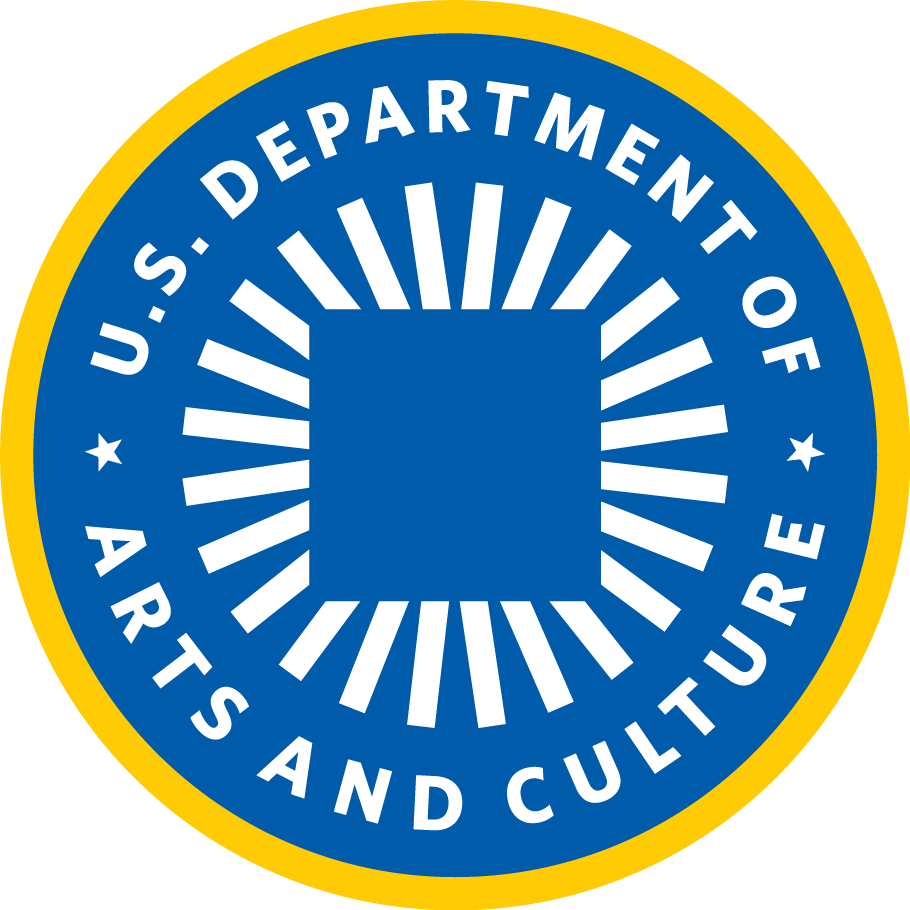By Arlene Goldbard, Chief Policy Wonk
In November 2016—at CULTURE/SHIFT 2016 in St. Louis, just a few days after the presidential election—we launched “Standing for Cultural Democracy: The USDAC’s Policy and Action Platform,” ten points of intervention to help bring about cultural democracy, to nurture a social order of equity, justice, creativity, and belonging.
Policy proposals like these are just ideas until people start putting them into action. This blogpost is the first in our “Prototyping Cultural Democracy” series, documenting seven projects that received small grants through USDAC Lab to implement aspects of the Platform at the local level:
conNECKted Imaginings for Truth & Reconciliation, Charleston, SC
BeCville, Charlottesville, VA
Belonging Bandwagon, Crestone, CO
STICK + MOVE, Richmond, VA
Migrant Stories: Participatory Theatre with Migrant Workers, Eastern Shore, VA
Remember2019, Phillips County, AR
Art Powered Places, Philadelphia, PA
We’ll be profiling each of these policy prototype projects, sharing documentation and interviews with the people executing them—so stay tuned! The first profile, focusing on the coNECKted project in Charleston, SC, was published today.
How did the USDAC’s policy prototypes evolve? It all started with our policy and action platform.
Standing for Cultural Democracy had been in preparation for many months before its November 2016 launch, with strategic questions multiplying in the run-up to the election. We doubted there was an immediate likelihood that any new administration, regardless of party, would support the kind of public service jobs program we called for in point one. After all, despite economic challenges and often-high unemployment levels, no Congress had seriously entertained a “new WPA” (to borrow a term from the 1930s New Deal that employed many artists through the five projects jointly known as “Federal One.”) In short, some ideas were planted as seeds that would need long-term cultivation.
Others were immediately feasible depending on political will and public demand. The Policy on Belonging, Platform point five, calls for public and private entities to adopt a formal Policy on Belonging and four other initiatives to deploy artists in public space, making belonging real. The Cultural Impact Study, Platform point eight, calls for universal adoption of a requirement that the impact of public interventions and policies on social fabric and cultural citizenship be studied and harmful impacts addressed, analogous to an environmental impact study. We knew these could be adopted at local, regional, or national levels, but we also knew that the results of the 2016 election would have to inform strategy. How?
My keynote speech for the plenary session launching the platform acknowledged the gravity of the moment. In retrospect, when you consider that we had no idea precisely what was to come, it takes on more intensity.
“The challenges we face under President Trump—racism, homophobia, xenophobia, sexism, institutionalized greed, state-sanctioned violence, and every other form of predatory behavior—are not new. But the level of response is already astounding. We will be working in countless local communities to build on the courageous action already seen from mayors of sanctuary cities, leaders who have declared their refusal to normalize hate, vast numbers of individuals and groups who have already—less than two weeks after the election—taken action in the courts, on the streets, and in their own lives and communities.
“Protecting and defending are urgent, essential priorities. The USDAC stands with all who are endangered by policies that deny belonging and further threaten the people. We stand to support and assist all those who are affected by the repression of rights. We will work with you to co-create a network of connection and support, to share skills in planning and executing creative resistance, and to bring as much attention as possible to your courageous work in kindling a shared vision of cultural democracy and putting it into practice.
“And while this massive outpouring of creative resistance unfolds, we can’t surrender our dreams because we awoke on 11/9 to this funhouse nightmare of democracy.”
Whatever the future might hold, we knew in November 2016 that Citizen Artists were committed to cultural organizing at the local level, work that would continue regardless of who occupied the White House. To catalyze and document some of this work, we put out a call offering micro-grants for participatory, replicable “pilot experiments that show how the Platform can be put into action.” Just $500 per project was available to support effective documentation and help in some small way with the work. This blog series shares the completed projects with you.
We hope they inspire you to find ways to implement Platform points in your own community. Right now—with the Supreme Court upholding the Muslim ban, basic cultural rights being eroded every day at the border, and an epidemic of phone calls to the police denouncing law-abiding African Americans for even showing up in public space—the Policy on Belonging (which has its own free, downloadable toolkit accessible here) seems especially germane and necessary. You can start with your own community. Consider asking your local house of worship, school board, neighborhood association, city council, or other group to adopt the Policy on Belonging, to commit to vetting their own actions for their impact on true cultural citizenship.
Whatever you’re inspired to do, whichever platform points are related, please feel free to call on us for help at hello@usdac.us.

